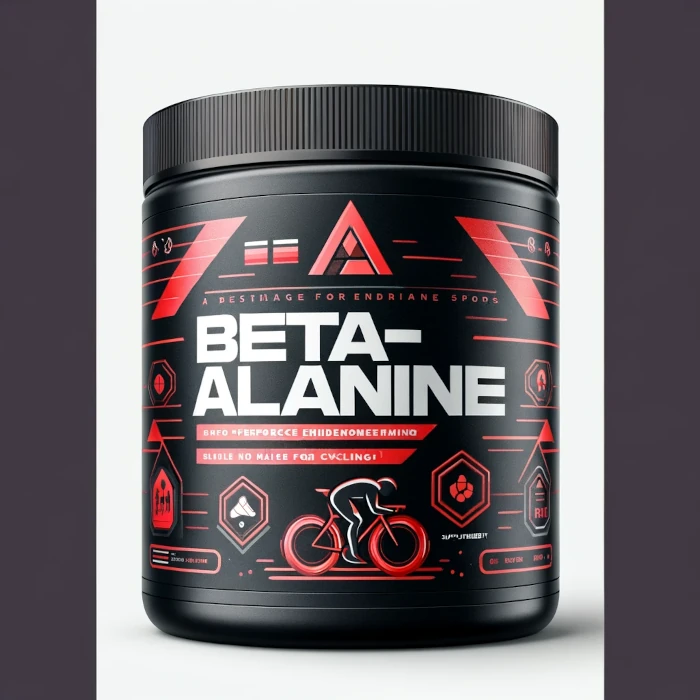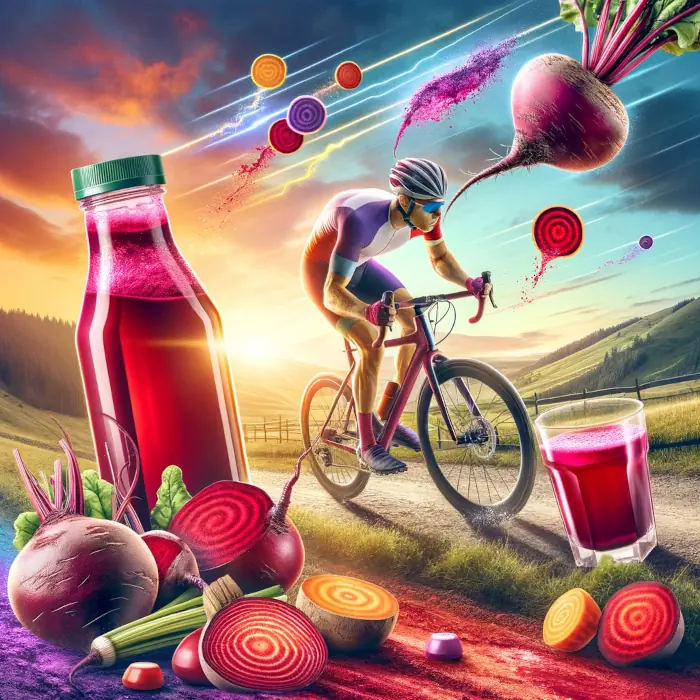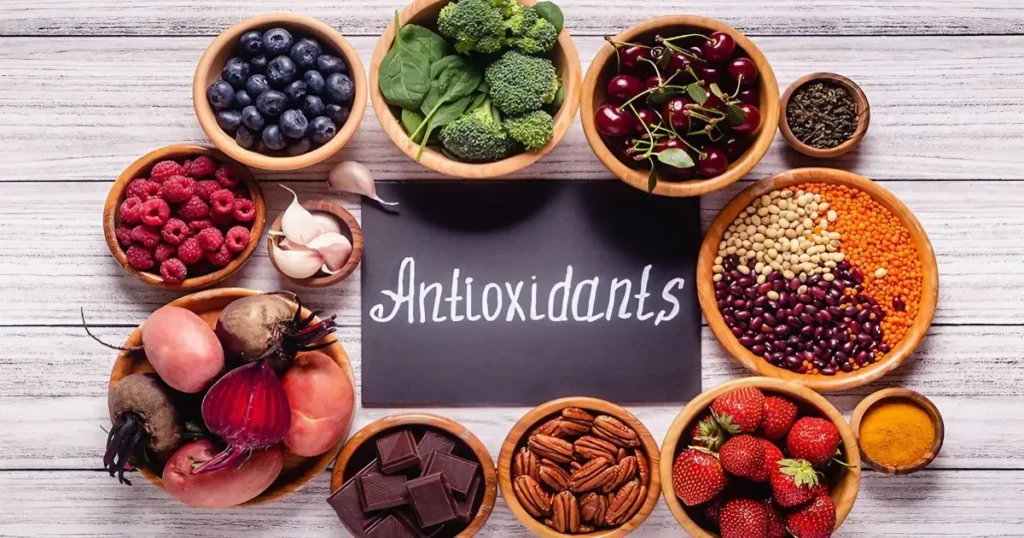Today’s market is flooded with an array of cycling supplements, each claiming to boost performance. But which of these truly deliver results?
In this article, we meticulously sift through scientific literature to separate fact from fiction, focusing on supplements that are genuinely effective. Our approach is grounded in solid scientific evidence, not hearsay.
Discover the reality behind the supplements that can authentically enhance your cycling experience, all supported by rigorous research.
Introduction
An overwhelming array of cycling supplements claim to enhance performance or hasten recovery. However, the reality is that most of these supplements lack substantial evidence supporting their effectiveness, and some might even impair your performance. Nonetheless, a select few supplements genuinely enhance performance, though this list is relatively brief.
FitandVirile.com’s Comprehensive Approach
At FitandVirile.com, our approach to supplement selection is as comprehensive as it is cautious. We meticulously include every supplement backed by scientific validation for effectiveness. But our exploration doesn’t stop there. We also keep an eye on emerging supplements, those hidden gems that have not yet made their mark in the mainstream. After all, today’s under-the-radar substance could be tomorrow’s breakthrough in performance enhancement.
In their quest for excellence, we know that cyclists may explore uncharted territories. They often experiment with new substances that lack legal clearance. This pursuit, driven by passion, can sometimes lack awareness. Such ventures can lead to risky and potentially harmful outcomes.
That’s why our mission at FitandVirile.com goes beyond merely showcasing scientifically proven supplements. We commit to enlightening our community about the risks associated with unapproved supplements. Our dedication is twofold: we not only provide access to safe, effective, and scientifically endorsed supplements, but we also steer our readers towards making choices that align with safety, legality, and the ethical standards of sports. It’s not just about enhancing performance; it’s about doing it responsibly and sustainably.
Preview of Key Cycling Supplements
This blog post won’t cover every cycling supplement that could enhance cycling performance but will highlight the most significant ones – those backed by substantial evidence. It is crucial to understand that various factors like intake timing, dosage, administration method, supplement source, other concurrent supplements, and genetic makeup can influence these supplements’ effectiveness. Incorrect usage could not only nullify the benefits but might also negatively affect your performance. Stay tuned as we dive into the nitty-gritty of the supplements that truly make a difference in the cycling world.
Beta-Alanine: A Crucial Cycling Supplement for Muscular Endurance
Diving into the world of cycling supplements, beta-alanine emerges as a significant component. As a non-essential amino acid, our bodies naturally produce beta-alanine, eliminating the need for dietary consumption. Its primary role is synthesising carnosine, a compound vital for muscular endurance, especially during high-intensity activities.

The International Society of Sports Nutrition has extensively studied beta-alanine and, in 2015, confirmed that beta-alanine substantially impacts muscle carnosine concentrations. This enhancement acts as an intracellular pH buffer, which is crucial for athletes engaging in strenuous activities. Health experts deem beta-alanine safe for healthy individuals at recommended doses. The most commonly reported side effect is a tingling sensation akin to the numbness experienced when a limb’s circulation is restricted, albeit to a lesser extent.
Research into beta-alanine’s effectiveness provides promising insights. A 2013 study, led by Samuel T. Howe and published in the International Journal of Sports Nutrition and Exercise Metabolism, gave highly trained cyclists either beta-alanine or a placebo over four weeks. The study, focusing on cycling performance, found a 44% likelihood that beta-alanine improved average power in a four-minute time trial compared to the placebo.
A separate study involving master’s female cyclists corroborated these findings, showing increased time to exhaustion and total work completed with beta-alanine supplementation. It’s likely that this enhancement results from lower increases in blood lactate levels.
Moreover, a comprehensive meta-analysis examining numerous studies on beta-alanine reported a median effect of a 2.85% improvement in performance. Intriguingly, the benefits of beta-alanine spanned across exercises lasting 60-240 seconds and those extending beyond 240 seconds. However, it showed no significant impact on exercises shorter than this time frame.
The duration of beta-alanine’s effectiveness is also pivotal. It appears that this supplement needs to be consumed consistently for weeks to yield substantial benefits. Single doses of beta-alanine, while possibly reducing perceived exertion, often lead to less impressive results in terms of performance enhancement.
One study delving into the effects of beta-alanine on different cycling time trials (1, 4, and 10 kilometres) discovered that performance improvements were noticeable only in the 4-kilometre trials. Researchers observed no significant differences in the 1K or 10K trials. This finding suggests a specific range within which beta-alanine is most effective, likely aligning with efforts that match the VO2 max zone or five-minute maximum power outputs.
Additive Effect of Beta-Alanine with Other Cycling Supplements
A key aspect of beta-alanine’s efficacy is its ability to produce additive effects, particularly when combined with sodium bicarbonate. This synergistic relationship enhances overall performance beyond what each supplement could achieve individually. For instance, a study investigating the combined effects of beta-alanine and sodium bicarbonate showed remarkable results. Participants were divided into groups receiving either beta-alanine, sodium bicarbonate, both, or a placebo. The group that received both supplements demonstrated a significant 14% increase in total work done, a clear indication of the additive benefits of this combination.
These findings are crucial for cyclists, as they suggest that beta-alanine can be even more effective when used in conjunction with other well-chosen supplements. It underscores the importance of a strategic approach to supplement use in cycling, where the right combination can lead to optimal performance gains.
Sodium Bicarbonate Supplements: Elevating Cycling Performance
Sodium bicarbonate, commonly known as baking soda, is gaining popularity in the cycling world. It’s valued for its potential to enhance endurance performance. The key benefit is maintaining pH levels close to normal during intense exertion. This proves particularly beneficial in endurance sports, including cycling.
Ingesting sodium bicarbonate just before high-intensity exercise appears to boost endurance athletes’ performance. This was evident in a study with competitive cyclists participating in 16.1-kilometre endurance trials. The cyclists consumed sodium bicarbonate shortly before their trials while in a fasted state. The results showed that those who ingested sodium bicarbonate significantly outperformed their counterparts in the placebo group. Researchers link this performance boost to maintaining optimal pH levels during extended, high-intensity efforts. The simplicity of adding a scoop of baking soda to a water bottle might make it seem like an easy solution for performance improvement.
However, using sodium bicarbonate has drawbacks, especially regarding gastrointestinal (GI) distress. A 2013 study on 11 endurance athletes highlighted increased GI symptoms. These included acid reflux, heartburn, dyspepsia, belching, bloating, and flatulence.
This side effect has led to the development of alternative products like Amp Human, a topical sodium bicarbonate cream applied directly to the skin around working muscles. Despite being an innovative approach to circumvent digestive issues, the research supporting these topical products, primarily funded by the manufacturers, is limited and not entirely convincing in its efficacy.

Additive Effect of Sodium Bicarbonate
Furthermore, sodium bicarbonate and beta-alanine show additive effects, boosting performance together. However, caffeine does not exhibit this same synergy with sodium bicarbonate. This study finds that both caffeine and sodium bicarbonate enhance high-intensity cycling time trial performance when ingested individually. However, their combined effect is not additive. This raises questions about the efficacy of co-ingesting these supplements before short-duration, high-intensity exercise.
In fact, combining them may not yield any extra benefits, but it might even have detrimental effects, as found in this study conducted on 200-m freestyle swimming performance. Cyclists may have to choose based on personal tolerance, especially given GI distress risks. This is crucial in long ultra-endurance events, where gastrointestinal health management is key.
In summary, sodium bicarbonate emerges as a powerful tool in the arsenal of cycling supplements, particularly when paired with beta-alanine. Its ability to maintain pH levels during high-intensity cycling can lead to noticeable performance improvements. However, cyclists must weigh the potential benefits against the risk of gastrointestinal discomfort and consider the individual and combined effects of other supplements like caffeine. Exploring alternative methods like topical applications presents an interesting avenue, but more research is essential to fully understand their efficacy and safety in the context of endurance cycling.
Beetroot Juice: A Key Cycling Supplement
Let’s delve into the increasingly popular realm of beetroot juice in endurance sports, particularly cycling. This natural elixir is unique; it is not just a cycling supplement but real food. The focus here isn’t on the beets or their vibrant red colour but rather on the nitrates they contain. These nitrates enhance various aspects of athletic performance, including blood flow, gas exchange, mitochondrial biogenesis and efficiency, and muscle contractions.
The Role of Nitrates in Athletic Performance

Interestingly, while beetroot juice has gained a lot of attention, it’s actually one of many vegetables that are high in nitrates. Including beetroot juice in the list of effective cycling supplements is somewhat contentious. Its impact on performance has led to divided opinions in the scientific community. Despite this, its popularity and frequent inquiries about its efficacy cannot be ignored. Some research backs up its benefits – for example, a study involving nitrate supplementation and cycling performance found improved power output and performance in subjects who consumed beet juice for six days before a 10-kilometre time trial. Additional studies suggest that beet juice might be even more beneficial for riding at higher altitudes.
However, contrasting studies, such as one involving well-trained cyclists, showed no significant improvement in one-hour time trial performance after beet juice consumption. A broader view from a 2017 meta-analysis reveals a small to moderate statistically significant effect of beet juice in time-to-exhaustion trials but only a minor, non-significant impact in graded exercise tests. Therefore, the general consensus is that beetroot juice may offer modest performance enhancements, emphasising that the gains are marginal.
Interactions with Other Supplements
An important aspect to consider is the interaction of beetroot juice with other supplements. Unlike some supplements that have additive effects, beetroot juice doesn’t seem to enhance the benefits of common combinations like caffeine. Given the robust evidence supporting the benefits of caffeine, it might be more advantageous to choose caffeine over beetroot juice. That said, combining both doesn’t seem to be harmful.
Beyond performance, beetroot juice also offers health benefits such as a high antioxidant content, indirectly supporting athletic performance. This multifaceted profile makes beetroot juice an exciting option for cyclists, albeit with the understanding that the performance gains are likely to be subtle.
Antioxidants: A Double-Edged Sword
As we delve into antioxidants, our final supplement topic, we encounter a paradox. Antioxidants are vital in combating free radicals generated during intense exercise, yet antioxidants in supplemental forms may actually impede your progress. Here’s why: intense exercise naturally increases the production of free radicals and causes oxidative stress. Antioxidants protect against these free radicals. But this protection raises a question: do antioxidants lessen the necessary oxidative stress for adaptation? Supplementing with antioxidants might interfere with your body’s natural adaptation to exercise, potentially diminishing the benefits of your training.
The Paradox of Supplemental Antioxidants
This review on vitamin C supplements and physical performance shows that athletes commonly use antioxidant supplements to combat oxidative stress. This stress can cause muscle damage, immune dysfunction, and fatigue. Yet, high doses of vitamin C supplements might counterintuitively reduce the adaptations induced by training, possibly by diminishing mitochondrial genesis or altering vascular function. Supporting this, research indicates that excessive antioxidant supplementation can undermine the health and performance benefits of exercise training. High doses of antioxidants in cells might even dampen the positive effects of exercise training, leading to reduced fitness gains – a result clearly at odds with athletes’ goals.
However, as we’ve noted earlier, antioxidants are naturally present in healthy foods. This raises a question: should the intake of these foods be a concern for athletes focused on maximizing their training effects?

Dietary Antioxidants: The Optimal Choice for Cyclists
A study focusing on lemon verbena and its impact on oxidative stress during exercise provides insightful findings. Participants in this study adhered to a 90-minute running routine over 21 days, during which they supplemented with either lemon verbena or a placebo. The results were significant: supplementation with lemon verbena didn’t inhibit the body’s natural adaptive response to exercise, and it also lessened exercise-induced oxidative damage. Researchers concluded that lemon verbena effectively reduces signs of muscle damage from regular running exercises without impeding cellular adaptation.
This result presents an ideal scenario: enhanced recovery times without compromising exercise adaptations. Furthermore, this benefit isn’t exclusive to lemon verbena; studies have shown that various high-antioxidant whole foods also aid in recovery without negatively affecting adaptation.
In conclusion, the most effective way for cyclists to maintain optimal antioxidant levels is through a varied and balanced diet rich in vitamins and minerals. Natural antioxidant sources can provide the best of both worlds – aiding recovery while preserving the body’s natural response to training.
It might seem ironic to conclude a blog post about supplements by advising against their use. Yet, it’s an important reminder: before turning to supplements for performance gains, it’s beneficial to refine your diet first. Regardless of how healthy your current eating habits are, there’s always room for improvement. By focusing on a nutritious diet, you will likely see a notable improvement in your cycling performance.
Conclusion
In conclusion, our exploration of cycling supplements reveals that only a select few, such as beta-alanine and sodium bicarbonate, are backed by solid scientific evidence for enhancing performance. While supplements like beetroot juice offer modest benefits on riding performance, Beyond performance, beetroot juice offers other health benefits, such as high antioxidant content that indirectly supports athletic performance. The use of antioxidants presents a paradox. Supplemental antioxidants might hinder the training adaptations they’re meant to enhance. The most effective way to maintain optimal antioxidant levels for cyclists is through a varied and balanced diet rich in vitamins and minerals.
The most effective strategy for cyclists is to prioritize a balanced diet rich in natural nutrients, which supports overall health and complements any supplemental regimen. While supplements can provide an edge, they are most effective when used as part of a holistic approach to cycling performance that includes diet, training, and recovery.
FAQs on Cycling Supplements
While antioxidants are vital in combating exercise-induced oxidative stress, supplemental forms might impede training adaptations. A balanced diet with natural antioxidants is recommended.
Some supplements might have side effects, like gastrointestinal distress with sodium bicarbonate. Always consider personal health conditions and consult a professional if necessary.
Some supplements, like beta-alanine and sodium bicarbonate, show additive effects. However, combinations like sodium bicarbonate and caffeine might not provide additional benefits.
Yes, sodium bicarbonate, commonly known as baking soda, helps maintain optimal pH levels during intense exertion, benefiting endurance sports like cycling.
Beta-alanine is known to increase muscle carnosine concentrations, acting as a pH buffer and enhancing muscular endurance, especially during high-intensity activities.
Diet plays a crucial role. Even with supplements, a nutritious diet is essential for optimal performance and should always be a priority.
Beetroot juice, rich in nitrates, has been shown to improve blood flow and muscle efficiency. However, its performance gains are generally considered to be marginal.
Scientific research has identified supplements like beta-alanine and sodium bicarbonate to be most effective in enhancing cycling performance.
Scientific research has identified supplements like beta-alanine and sodium bicarbonate as effective in enhancing cycling performance.
Consider factors like the timing of intake, dosage, and individual tolerance. Also, understand that supplements are most effective as part of a holistic approach to performance.
Join the Conversation and Stay Informed
Thank you for taking the time to read this post. Your thoughts and experiences are valuable to us. If you’re curious about supplements not covered here, please share them in the comments below. We’re always looking for new topics to explore in future posts. If you found this information helpful, don’t forget to subscribe for more weekly science-based insights into supplements and men’s health. And if you know fellow cycling enthusiasts who might benefit from this post, feel free to share it with them. Stay tuned for more informative content coming your way soon!

